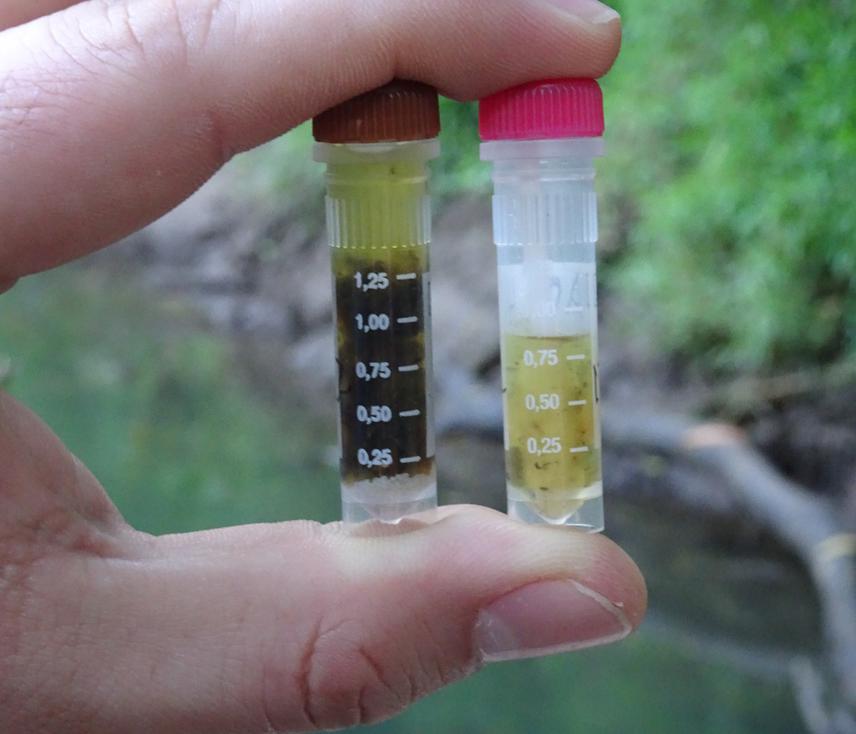Manuel Santiago Plata
The neotropical otter (Lontra longicaudis) is considered nearly threatened globally and a species concern in Costa Rica. This proposed research will use noninvasive genetic sampling to determine population size and density as well as assess genetic diversity and population connectivity of neotropical otters in the San Juan River Basin, Costa Rica. The results generated by this research will provide a better understanding of how anthropogenic and natural landscapes might act as barriers and facilitators of otter dispersal within and between hydrological basins. We expect to make recommendations for maintaining genetic diversity, connectivity, and population viability for this species, providing reliable information for decision-making and habitat conservation.

Example of non-invasive genetic sample collected using both protocols. Puerto Viejo river. Sampling season 2022.
The neotropical otter (Lontra longicaudis) is an elusive and predatory mammal located at the top of the trophic chain of aquatic environments. This project will use noninvasive genetic sampling to determine the population size and density of neotropical otters in the San Juan River Basin (SJRB), Costa Rica. Additionally, we will assess the genetic diversity and population connectivity between and within sub-basins of this threatened species. The SJRB is considered one of the most important basins in the Central America region because it conserves important freshwater reservoirs and a high diversity of ecosystem types. Despite its importance, the SJRB has suffered accelerated changes due to human activities such as river damming and desiccation and increased production of agricultural crops (e.g., banana, pineapple, and citrus), which threaten its ecological connectivity. Due to its biological importance, it is essential to generate data to provide reliable information to the National System of Conservation Areas (SINAC) in Costa Rica for the conservation of the species and its ecosystems.
In Costa Rica, the Neotropical otter is listed as a protected species of concern, but there is little information on habitat requirements making it difficult to assess its population status. The Global Otter Conservation Strategy notes the importance of generating information about human impacts on otter populations, highlighting the importance of genetic studies in future conservation and management plans to better understand genetic diversity and population connectivity among regions. Despite the effort to conduct otter population genetic studies across its range, there is still a lack of information about otter population genetic parameters in the Central American region.
The main objectives of this project are: a) conduct a fecal DNA survey of 15 tributaries to obtain an index of population size and density, b) evaluate genetic diversity and genetic structure for otters in the SJRB, c) identify landscape features and anthropogenic activities that influence the presence and dispersal of otters in the rivers, and d) make recommendations for management approaches to maintain genetic diversity, connectivity, and population viability for this species across the range.
We expect to increase understanding of landscape features that facilitate and restrict otter movement and gene flow, providing reliable information for decision making. Furthermore, this project will help achieve the recommendations made by the Global Otter Conservation Strategy and the International Union for Conservation of Nature (IUCN) to increase the understanding of genetic diversity and gene flow dynamics for otter populations across the country and add to the information generated in previously conducted studies.
Header: Collection of non-invasive genetic otter samples in the Puerto Viejo River. Sampling season 2022.